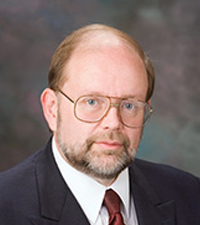
On February 17, the Labor & Workforce Development Agency (LWDA) announced the creation of an Employer Portal for COVID-19 industry guidance. Per the LWDA, the Portal is, “…a one-stop hub for California employers to quickly find up-to date state and local county COVID-19 guidance by business industry.”
The news release announcing the Portal, and the disclaimer on the Portal itself, make it clear information entered by a business will not be used for the purpose of enforcement. It is also clear the Portal is not intended to provide legal advice.
The website hosting the portal, titled “Together We Can Work Safer,” has a number of links to additional compliance information for employers, information for workers, and an “Outreach Toolkit.” A deeper journey into these resources shows much of the information is already available through other Department of Industrial Relations (DIR) web pages.
But it also includes some materials that are not entirely accurate.
For example, when discussing supplemental paid sick leave benefits (SPSL) – which generally must be exhausted before an injured worker begins to collect temporary disability or salary continuation benefits – the site states, “…the California requirement to provide SPSL for COVID-19 related reasons expired on December 31, 2020, but employers should allow workers to finish using their SPSL hours if they were already using them for COVID-19 reasons.”
While true, it is only part of the story. The rest of the story is that SPSL benefits are still being required by various local governments throughout the State. These local jurisdictions include the City of Los Angeles, the County of Los Angeles, and the City and County of San Francisco. There are others.
The discussion of Senate Bill 1159 (Hill) suffers from the need to distill its complexities into summaries more easily digestible for the employers accessing the site. Nevertheless, reports of COVID-19 cases are to be provided to claims administrators, not just “insurers.”
The presumption in SB 1159 governing claims of most non-public safety and healthcare workers can be rebutted by any relevant evidence, not just “… measures they (employers) have taken to reduce potential transmission of COVID-19 in the workplace.” There is also no mention of the specific type of test that triggers reporting to the claims administrator or of the requirement to keep confidential the names of employees who have tested positive but have not claimed the exposure was at work. This may seem like semantics, but given the penalties for non-compliance some editing of these summaries might be in order.
The site does not appear to provide a link to the California Department of Public Health (CDPH) FAQs on Assembly Bill 685 (Reyes). Access to those resources is critical to meet ongoing compliance obligations as it relates to notifications when there is a COVID-19 case at the workplace and where there is an outbreak.
The new Portal and additional resources provided by the LWDA are useful and should be added to the library of government-sponsored sites providing additional details for complying with the requirements of SB 1159, AB 685, and the COVID-19 Prevention Emergency Temporary Standard (ETS). Its flaws are largely of omission, but also underscore the need not to rely exclusively on these summaries (or ubiquitous FAQs from DIR and CDPH) when looking to navigate successfully these many and conflicting requirements.
Note: The opinions expressed herein may or may not be those of Workers’ Comp Executive. Mark Webb is a former Arizona insurance regulator, insurance company chief compliance officer, and is an expert in corporate governance, risk and compliance. He is the owner of Prop 23 Advisors.

